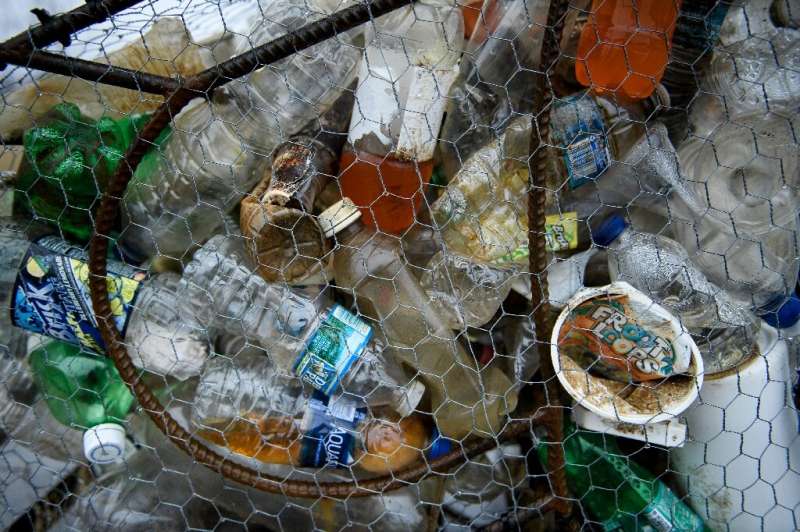
Plastic recycling rates are declining even as production shoots up, according to a Greenpeace U.S. report out Monday that blasted industry claims of creating an efficient, circular economy as “fiction”.
Titled “Circular Claims Fall Flat Again,” the study found that of 51 million tons of plastic waste generated by US households in 2021, only 2.4 million tons were recycled, or around 5%.
After peaking in 2014 at 10%, the trend has been decreasing, especially since China stopped accepting the West’s plastic waste in 2018.
According to Greenpeace U.S.’s survey, only two types of plastic are widely accepted at the nation’s 375 material recovery facilities.
The first is polyethylene terephthalate (PET), which is commonly used in water and soda bottles; and the second is high density polyethylene (HDPE), seen in milk jugs, shampoo bottles and cleaning product containers.
These are numbered “1” and “2” according to a standardized system in which there are seven plastic types.
But being recyclable in theory doesn’t mean products are being recycled in practice.
The report found that PET and HDPE products had actual reprocessing rates of 20.9% and 10.3%, respectively—both down slightly from Greenpeace U.S.’s last survey in 2020.
Plastic types “3” through “7”—including children’s toys, plastic bags, produce wrappings, yogurt and margarine tubs, coffee cups and to-go food containers—were reprocessed at rates of less than 5%.
Despite often carrying the recycling symbol on their labels, products that use plastic types “3” through “7” fail to meet the Federal Trade Commission classification of recyclable.
According to the report, there were five main reasons why plastic recycling is a “failed concept.”
First, plastic waste is generated in vast quantities and is extremely difficult to collect— as becomes clear during what the report called ineffective “volunteer cleanup stunts” funded by nonprofits such as “Keep America Beautiful.”
Second, even if it were all collected, mixed plastic waste cannot be recycled together, and it would be “functionally impossible to sort the trillions of pieces of consumer plastic waste produced each year,” the report said.
Third, the recycling process itself is environmentally harmful, exposing workers to toxic chemicals and itself generating microplastics.
Fourth, recycled plastic carries toxicity risks through contamination with other plastic types in collection bins, preventing it from becoming food-grade material again.
Fifth and finally, the process of recycling is prohibitively expensive.
“New plastic directly competes with recycled plastic, and it’s far cheaper to produce and of higher quality,” said the report.